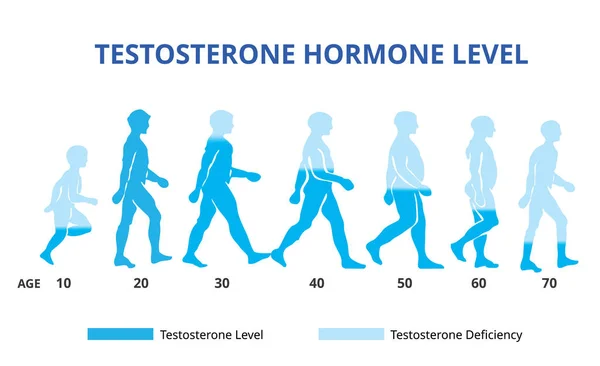Men’s Hormone test
Men's Hormone Test
Health Check-Up at IntelliHealthPlus Clinic, Bangkok
A men’s hormone test, also known as a male hormone panel, is a medical test that measures the levels of hormones in a man’s body. Hormones such as testosterone, estrogen, follicle-stimulating hormone (FSH), luteinizing hormone (LH), and prolactin are typically evaluated.
This type of hormone testing is often used to assess and diagnose conditions such as hypogonadism (low testosterone), infertility, erectile dysfunction, reduced libido, mood changes, and muscle weakness. It can also help identify hormonal imbalances or underlying endocrine disorders.
The test is usually performed by analyzing a blood sample. Results provide valuable information about hormone levels and their balance. Treatment options may include hormone replacement therapy, lifestyle modifications, or other interventions to restore hormonal balance and improve overall well-being.
What is involved in mens hormone test?
The test typically involves collecting a blood sample, which is then analyzed in a laboratory. The blood sample provides valuable information about the levels of these hormones in circulation. The test results can indicate if hormone levels are within the normal range, imbalanced, or deviating significantly from expected levels. Abnormal hormone levels can provide insights into potential hormonal disorders, such as low testosterone (hypogonadism), thyroid dysfunction, or other endocrine-related conditions.
By assessing hormone levels, healthcare professionals can make accurate diagnoses, identify hormonal imbalances, and develop tailored treatment plans. Depending on the specific hormone imbalances detected, treatment may involve hormone replacement therapy, lifestyle modifications, dietary changes, or other interventions to restore hormonal balance and improve overall well-being. Regular monitoring of hormone levels through follow-up tests can help assess the effectiveness of treatment and make necessary adjustments.

What hormones are tested?
The most common hormone measured in a men’s hormone test is testosterone, which is the primary male sex hormone. However, other hormones may also be included in the panel, depending on the specific concerns and symptoms being addressed. Some of the hormones that may be tested in a men’s hormone test include:
This hormone is responsible for the development and maintenance of male sexual characteristics and plays a crucial role in reproductive health, muscle mass, bone density, mood regulation, and overall well-being.
LH stimulates the production of testosterone in the testes. It helps regulate the testosterone levels in the body.
FSH works together with LH to regulate the production of sperm in the testes.
While primarily considered a female hormone, estradiol also exists in men in smaller amounts. It plays a role in bone health, cardiovascular health, and libido.
Prolactin is involved in the production of breast milk in women. In men, high levels of prolactin can affect sexual function and fertility.
TSH is responsible for regulating the thyroid gland’s production of thyroid hormones, which are crucial for metabolism and energy regulation.
These hormones are produced by the thyroid gland and play a key role in regulating metabolism, growth, and development.
Benefits of men's hormone tests:
The benefits of a men’s hormone test are numerous and can have a significant impact on overall health and well-being as it can help identify hormonal imbalances that may be causing symptoms such as fatigue, decreased libido, mood swings, and muscle weakness. By pinpointing the underlying hormonal issues, appropriate treatment options can be explored, including hormone replacement therapy or lifestyle modifications, leading to improved energy levels, sexual function, mood stability, and overall well-being.
Hormone testing can also aid in the early detection and management of conditions such as hypogonadism, infertility, and certain endocrine disorders, allowing for timely interventions and improved long-term health outcomes. Regular hormone testing can provide valuable insights into men’s health and help optimize hormonal balance for better physical and emotional health.
Here are some key benefits of undergoing a men’s hormone test:
1. Accurate diagnosis:
Hormone testing provides valuable information about hormone levels in the male body, particularly testosterone. It helps healthcare professionals accurately diagnose hormone imbalances, such as low testosterone (hypogonadism) or other hormonal disorders, allowing for targeted and appropriate treatment.
2. Personalized treatment plans:
With the insights gained from hormone testing, healthcare providers can develop personalized treatment plans tailored to address specific hormone imbalances. This may involve hormone replacement therapy, lifestyle modifications, dietary changes, or other interventions aimed at optimizing hormone levels and improving symptoms.
3. Improved sexual health:
Hormone imbalances, particularly low testosterone, can contribute to sexual health issues such as erectile dysfunction, low libido, and reduced sexual performance. Hormone testing helps identify such imbalances and allows for targeted interventions to improve sexual function and overall sexual health.
4. Increased energy and vitality:
Hormonal imbalances can often result in fatigue, low energy levels, and a general sense of decreased vitality. By identifying and addressing hormone imbalances, hormone testing can help restore energy levels, improve overall vitality, and enhance quality of life.
5. Enhanced muscle mass and strength:
Testosterone is essential for the development and maintenance of muscle mass and strength in men. Hormone testing can identify low testosterone levels that may contribute to muscle loss or difficulty in building and maintaining muscle. Proper treatment and management of hormone imbalances can help optimize muscle health.
6. Weight management:
Hormone imbalances can affect body composition and contribute to weight gain, particularly in the abdominal area. By identifying hormone imbalances through testing, healthcare providers can develop strategies to restore hormonal balance, which may aid in weight management and body fat reduction.
7. Mood regulation:
Hormone imbalances can impact mood and contribute to symptoms such as irritability, depression, or mood swings. Hormone testing helps identify these imbalances, allowing for targeted interventions to restore hormonal balance and improve overall mood and emotional well-being.
8. Bone health:
Hormone imbalances, especially low testosterone, can contribute to decreased bone density and an increased risk of osteoporosis. Hormone testing helps identify such imbalances, enabling early intervention and appropriate management to maintain optimal bone health.
By undergoing a men’s hormone test, individuals can gain valuable insights into their hormone levels, leading to accurate diagnoses, personalized treatment plans, and improvements in various aspects of health, including sexual function, energy levels, muscle mass, weight management, mood, and bone health. It empowers men to take control of their hormonal well-being and improve their overall quality of life.
Symptoms of hormone imbalances in men:
Hormone imbalances in men can manifest through various symptoms that can affect physical, emotional, and sexual health. Here are some common symptoms of hormone imbalance in men:
Difficulty achieving or maintaining erections can be a sign of hormonal issues, particularly low testosterone levels.
Reduced sex drive or a lack of interest in sexual activity is a common symptom of hormonal imbalance, particularly low testosterone.
Persistent feelings of tiredness, low energy levels, and reduced stamina can be associated with hormone imbalances.
Decreased muscle mass, strength, and difficulty building or maintaining muscle can be signs of hormonal imbalances, including low testosterone.
Hormone imbalances can contribute to increased body fat, especially in the abdominal area. Men may experience weight gain or find it challenging to lose weight despite efforts.
Hormonal imbalances can impact mood, leading to symptoms such as irritability, depression, anxiety, or mood swings.
Hormonal imbalances, particularly low testosterone, can contribute to reduced bone density and increase the risk of osteoporosis.
Changes in hormone levels, specifically an increase in dihydrotestosterone (DHT), can contribute to male pattern baldness or excessive hair shedding.
Hormonal imbalances can cause the development of excess breast tissue in men, resulting in enlarged or tender breasts.
Hormone imbalances can affect sleep patterns, leading to insomnia, restless sleep, or poor sleep quality.
It’s important to note that these symptoms can be caused by various factors, and experiencing one or more of these symptoms does not necessarily indicate a hormone imbalance. If you suspect a hormone imbalance or are experiencing persistent symptoms, it is advisable to consult with a healthcare professional and arrange a hormone test for an accurate diagnosis and appropriate treatment. They can conduct the necessary tests, such as hormone level measurements, to assess your hormonal status and determine the underlying cause of your symptoms.
Common causes of hormone imbalances in men
Hormone imbalances in men can occur due to various factors. Here are some common causes of hormone imbalances in men:
As men age, their hormone levels naturally decline, particularly testosterone. This age-related decline in testosterone levels, known as andropause or male menopause, can lead to hormone imbalances.
Hypogonadism refers to the reduced or impaired function of the testes, resulting in inadequate testosterone production. It can be caused by congenital conditions, testicular injury or infection, chemotherapy or radiation therapy, certain medications, obesity, or chronic medical conditions.
Certain conditions affecting the testes, such as testicular cancer, orchitis (inflammation of the testicles), or testicular trauma, can disrupt hormone production and lead to hormone imbalances.
The pituitary gland, located at the base of the brain, produces hormones that regulate various bodily functions, including testosterone production. Disorders of the pituitary gland, such as tumors, can interfere with hormone regulation and lead to imbalances.
Excess body weight, particularly abdominal fat, can contribute to hormone imbalances in men. Adipose tissue can convert testosterone into estrogen, leading to lower testosterone levels and an imbalance between these hormones.
Certain chronic medical conditions, such as diabetes, liver or kidney disease, and hormonal disorders like thyroid dysfunction, can disrupt hormone production and cause imbalances.
Some medications, such as corticosteroids, opioids, and certain psychiatric medications, can affect hormone levels in men. Additionally, treatments like radiation therapy or chemotherapy for cancer can cause temporary or permanent hormone imbalances.
Unhealthy lifestyle habits, such as excessive alcohol consumption, smoking, poor nutrition, lack of exercise, chronic stress, and inadequate sleep, can contribute to hormone imbalances in men.
Exposure to certain environmental chemicals, such as endocrine-disrupting compounds found in plastics, pesticides, and some industrial chemicals, may interfere with hormone regulation and lead to imbalances.
Rare genetic disorders, such as Klinefelter syndrome, Kallmann syndrome, or androgen insensitivity syndrome, can cause hormone imbalances in men due to abnormalities in hormone production or receptor function.
It’s important to note that hormonal imbalances can be complex, and sometimes the exact cause may not be easily identifiable. If you suspect a hormone imbalance or are experiencing persistent symptoms, it is advisable to consult with a healthcare professional and arrange a hormone test for an accurate diagnosis and appropriate treatment.
How to prevent hormone imbalances in men:
While some hormone imbalances in men are inevitable due to natural aging processes, there are certain steps you can take to help prevent or minimize the risk of hormone imbalances. Here are some preventive measures that may help maintain hormonal balance in men:
- Maintain a healthy weight
- Eat a balanced diet
- Exercise regularly
- Manage stress
- Get sufficient sleep
- Limit alcohol consumption
- Avoid tobacco and illicit drug use
- Minimize exposure to environmental toxins
- Regular health check-ups
- Consult with a healthcare professional
Remember that individual hormone balance can vary, and it’s important to work closely with a healthcare professional to determine the best approach for maintaining hormone balance based on your specific needs and circumstances.
How often should men get a hormone test?
Men may occasionally require routine hormone testing, particularly if they are displaying signs of hormonal abnormalities including fatigue, a decline in libido, erectile problems, mood swings, or weakness. To determine therapy success and guarantee hormonal balance, routine follow-ups and monitoring may be required.
when should a man get hormone test?
Men who have symptoms that might be caused by hormonal imbalances should consider getting a hormone test. Low energy, decreased libido, erectile dysfunction, mood swings, muscle weakness, unexpected weight gain or loss, and changes in body hair or skin are a few examples of these symptoms. Hormone testing may also be advantageous for males who have certain medical issues, such as infertility, osteoporosis, or certain endocrine diseases.
Frequently Asked Questions:
What is a men's hormone test?
Why would a man need a hormone test?
How is a men's hormone test performed?
How often should men get a hormone test?
An Individual's Specialist Tests
Health Check-Ups for Men
Specialist Tests
Why Us..
Health Check-Ups at IntelliHealthPlus Clinic By StemCells21
FREE CONSULTATION
Fast Track
1-2 Days Test Results
Health Check-ups at IntelliHealth+
At IntelliHealthplus Clinic, we believe in the importance of proactive healthcare and empowering our patients to take control of their health.
Our health check-up package provides valuable insights into your health status, and our team of experienced physicians will work with you to develop a personalized plan to optimize your health and well-being.
In our practice we apply evidence-based methods that have been practiced and refined for over 10 years in our operations, offering advanced techniques for treating various conditions.
If you would like to find out more or speak to one of our specialist contact us today to book your FREE consultation.
Book a FREE Consultation Now
IH+ Contact Form
Contact our international team of medical professionals with language services available in English, Thai, Arabic, Chinese, Spanish, and Russian.
Please indicate your preferred language and we will do our best to accommodate your request.


